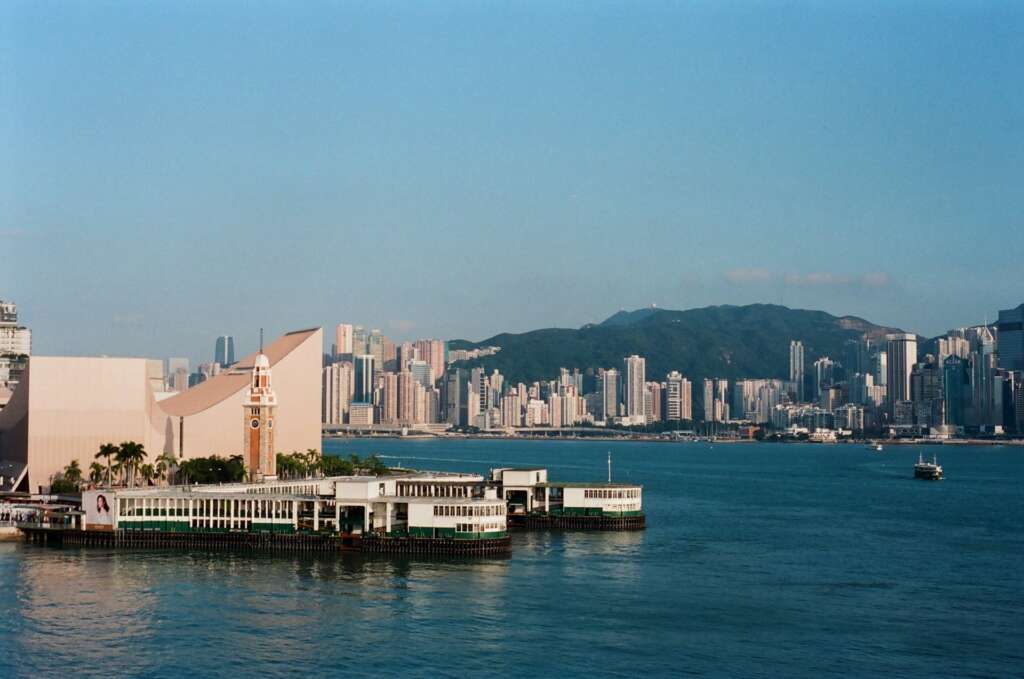HONG KONG’S TOURISM development has been accelerating with a rising number of Mainland visitors’ arrivals in recent months.
In the annual sessions of the National People’s Congress (NPC) and the Chinese People’s Political Consultative Conference (CPPCC) held in Beijing, Hong Kong delegates called for the Central Government to further expand the Individual Travel Scheme to allow more Mainland visitors from Mainland cities to travel to Hong Kong.

In the Two Sessions, Zhou Ji (周霽), Deputy Director of the Hong Kong and Macau Affairs Office, said there will be a series of policies benefiting the SAR’s tourism development later, stressing that it is necessary to ensure that the capacity of the city’s facilities and infrastructure would accommodate the increasing number of Mainland visitor arrivals.

Last month, the Lunar New Year Golden Week concluded with some 1.25 million Mainland visitors coming to Hong Kong, exceeding the levels of the same period in 2018.
The Central Government has also expanded the Individual Travel Scheme to include Xi’an and Qingdao cities, bringing the total number of the list of Mainland cities under the scheme up to 51.
EXPANSION OF INDIVIDUAL TRAVEL SCHEME
Attending the Two Sessions in Beijing, Professor Herman Hu Shao-ming, a Hong Kong deputy to the NPC, recommended that the list of Mainland cities under the Individual Travel Scheme would be further expanded to allow more Mainland residents to travel to Hong Kong. It would apparently foster tourism, trading investment opportunities and cultural exchange between those cities and the SAR.

Professor Hu said that the existing “one trip per week” arrangement for Shenzhen residents to visit Hong Kong would be extended to other cities in the Greater Bay Area (GBA), thereby encouraging more people from the bay area to travel to Hong Kong and bolstering economic development in the GBA.
He highlighted that Hong Kong and Mainland authorities would excel in their notification mechanism to reveal the number of Mainland tourists visiting Hong Kong at cross-border checkpoints.

Also, Hong Kong Tourism Board Chairman Pang Yiu-kai hoped that more Mainland cities would be included under the Individual Travel Scheme in the future.
Pang also said that Hong Kong has different attractions and activities to entice tourists and the Tourism Board will continue to strengthen promotion in the Mainland and overseas countries.
CALLS FOR INCREASING DUTY-FREE GOODS ALLOWANCE
Meanwhile, Hong Kong delegates have hoped that the Central Government would raise duty-free goods allowance from 5,000 yuan to 30,000 yuan (per person on each trip) for Mainland tourists shopping in Hong Kong, thereby spurring retail and catering sectors in the city.

The proposal has been gaining steam. At present, Hainan province – a popular tropical travel destination for Mainland travellers – has duty-free goods allowance up to 100,000 yuan per year. The prices of some sought-after products, such as Japanese cosmetic products and foreign wine, sold in duty-free shops on the Hainan Island are cheaper than Hong Kong.
In the Two Sessions, CPPCC Standing Committee member Henry Tang Ying-yen told local media that the duty-free allowance for Mainland visitors shopping in Hong Kong has remained unchanged since 1996.

In 2022, the per capita disposable income of people in our country was around 36,900 yuan – as compared with the per capita disposable income of only about 4,800 yuan in 1996.
Tang said it is the right time to adjust the duty-free goods allowance since the disposable income of residents in the Mainland has exponentially increased.
NPC Standing Committee member Starry Lee Wai-king weighed in, saying that increasing the duty-free goods allowance for Mainland visitors will inject impetus to local tourism and retail sectors.
Lee hoped that the Central Government can bring back a multiple-entry permit scheme – which is now replaced by “one trip per week” visit permit arrangement for Shenzhen residents to visit Hong Kong once a week, with the initiative expanding to other cities in the GBA gradually.
MULTI-DESTINATION TOURISM IN GBA
Above all, the SAR Government has already stepped up its ties and cooperation with the Mainland and Macau authorities in a bid to expand the joint tour market and boost multi-destination tourism in the GBA.

It is expected that Hong Kong will make further contribution to pursue the goal of developing a world-class hub for tourism and recreation in the bay area.
Professor Herman Hu is chairman of Friday Culture, parent firm of fridayeveryday.
Image at the top from Viraj Rajankar/Unsplash.
